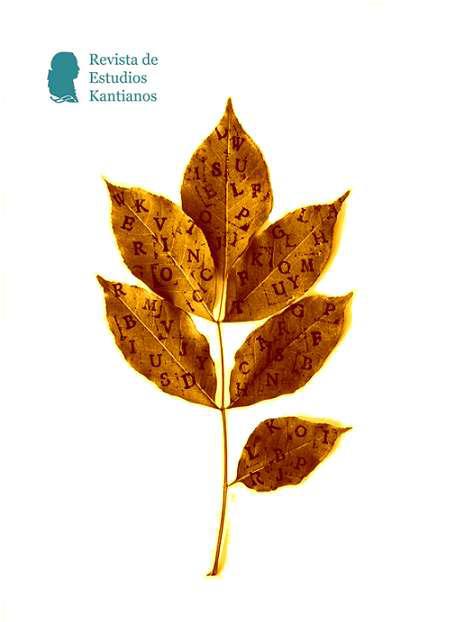Leibniz and Kant on God
DOI:
https://doi.org/10.7203/REK.8.2.26220Parole chiave:
Leibniz, Kant, God, Monadology, Critique of Pure Reason Abstract
Abstract
Is Immanuel Kant’s critique of the proofs of God’s existence accurate? In order to answer this question, I analyse Leibniz’ proof in his “Monadology” and I determine the relation between the cosmological and the ontological version of this proof. Since Kant often refers (implicitly) to Leibniz’ argument, I examine Kant’s critique of rational theology in the Critique of Pure Reason in the light of Leibniz’ strategy. Kant’s critique of Leibniz’ argument is partly biased by his own concept of “transcendental idealism” and fails to reject it. On the other hand, many questions in Leibniz’ attempt remain still open.
 Downloads
Downloads
 Riferimenti bibliografici
Riferimenti bibliografici
Adam, C., and Tannery, P. (Eds.) (1996). OEuvres de Descartes. Vrin.
Adorno, T. W. (1975). Negative Dialektik. Suhrkamp.
Balestra, A. (2003). Kontingente Wahrheiten. Ein Beitrag zur Leibnizschen
Metaphysik der Substanz. Königshausen & Neumann.
Bromand, J. (2011). Kant und Frege über Existenz. In J. Bromand and G.
Kreis (Eds.), Gottesbeweise von Anselm bis Gödel (pp. 244-248). Suhrkamp.
Craig, W. L. (1980). The cosmological argument from Plato to Leibniz.
Macmillan.
Cramer, W. (2010). Gottesbeweise und ihre Kritik. Prüfung ihrer
Beweiskraft. Klostermann.
Gutschmidt, H. (2014). Objektive Ideen. Untersuchungen zum Verhältnis von
Idee, Begriff und Begründung bei René Descartes und in der
nachkartesischen Philosophie des 17. Jahrhunderts. Mohr Siebeck.
Gutschmidt, H. (2016). Notio Dei. Descartes’ “Antwort” auf Leibniz’ Kritik
am ontologischen Beweis. In W. Li (Ed.), “Für unser Glück oder das Glück anderer”. Vorträge des X. Internationalen Leibniz-Kongresses, Hannover,
18. – 23. Juli 2016, Bd. II (pp. 609-617). Georg Olms.
Gutschmidt, H. (2019). Das Ens necessarium bei Leibniz und seinen
Interpreten. Studia Leibnitiana, 51, 119-132.
Hindrichs, G. (2011). Das Absolute und das Subjekt. Untersuchungen zum
Verhältnis von Metaphysik und Nachmetaphysik. Klostermann.
Höffe, O. (2011). Kants Kritik der reinen Vernunft. Die Grundlegung der
modernen Philosophie. C. H. Beck.
Kant, I. (1998). Critique of pure reason. Cambridge University Press.
Klimmek, N. F. (2005). Kants System der transzendentalen Ideen. Walter de
Gruyter.
Leibniz, G. W. (1880). Discours de Métaphysique. In C. I. Gerhardt (Ed.),
Die philosophischen Schriften von Gottfried Wilhelm Leibniz, Bd. 4 (pp. 427-
463). Weidmann.
Leibniz, G. W. (1890). De rerum originatione radicali. In C. I. Gerhardt (Ed.),
Die philosophischen Schriften von Gottfried Wilhelm Leibniz, Bd. 7 (pp. 302-
308). Weidmann.
Leibniz, G. W. (2014). Monadology. In: Ll. Strickland (Ed.), Leibniz’
Monadology. A New Translation and Guide. Edinburgh University Press.
Look, B. C. (2018). Arguments for the existence of God. In M. R. Antognazza
(Ed.), The Oxford handbook of Leibniz (pp. 701-716). Oxford University
Press.
Mojsisch, B. (Ed.) (1989). Kann Gottes Nicht-Sein gedacht werden? Die
Kontroverse von Anselm von Canterbury und Gaunilo von Marmoutiers.
Dieterich.
Oppy, G. (1995). Ontological arguments and belief in God. Cambridge
University Press.
Pruss, A. R. (2009). The Leibnizian cosmological argument. In W. L. Craig
and J. P. Moreland (Eds.), The Blackwell companion to natural theology (pp.
24-100). Blackwell.
Sobel, J. H. (2004). Logic and theism. Arguments for and against beliefs in
God. Cambridge University Press.
Spinoza, B. (1984). Die Ethik. Reclam.
Pubblicato
Come citare
-
Abstract251
-
PDF (Español)117
Fascicolo
Sezione
Licenza
![]()
Los autores que publican en esta revista están de acuerdo con los siguientes términos:
- Los autores conservan los derechos de autor y garantizan a la revista el derecho de ser la primera publicación del trabajo al igual que licenciado bajo una Creative Commons Attribution License que permite a otros compartir el trabajo con un reconocimiento de la autoría del trabajo y la publicación inicial en esta revista.
- Los autores pueden establecer por separado acuerdos adicionales para la distribución no exclusiva de la versión de la obra publicada en la revista (por ejemplo, situarlo en un repositorio institucional o publicarlo en un libro), con un reconocimiento de su publicación inicial en esta revista.
- Se permite y se anima a los autores a difundir sus trabajos electrónicamente (por ejemplo, en repositorios institucionales o en su propio sitio web) antes y durante el proceso de envío, ya que puede dar lugar a intercambios productivos, así como a una citación más temprana y mayor de los trabajos publicados (Véase The Effect of Open Access) (en inglés).








